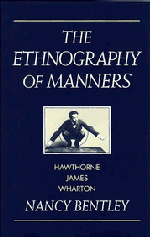5 - Edith Wharton and the alienation of divorce
Published online by Cambridge University Press: 24 October 2009
Summary
Marriage is a form of sex-union recognized and sanctioned by society. It is a relation between two or more persons, according to the custom of the country.
–Charlotte Perkins Gilman, Women and EconomicsSurveying the “fantastic” spectacle of international social life at a Paris restaurant, in Wharton's Custom of the Country, the Frenchman Raymond de Chelles is unable to properly classify American women. “Your young girls look so experienced, and your married women sometimes so – unmarried”. His American companion, Charles Bowen, supplies the key to the puzzle: “Well, they often are – in these days of divorce”. Charles's description of the American divorcee as an “unmarried married” woman locates what will become an important kind of female identity or status in the novel. It is a status that is legally precise – she's either married or she's not – but socially far more complex: if divorced, she can be both. Charles's wordplay must be taken seriously, because Raymond's comment is prompted by the sight of the central protagonist in the novel, Undine Spragg. Though Charles assures Raymond that Undine is married, we will later learn that she is also already unmarried (divorced from Elmer Moffatt). What is more, she is at this moment about to embark with Peter Van Degen on a trip she chooses to call a “honeymoon”, making her in a sense doubly married and waiting only for the law to “ratify the bond” (862).
- Type
- Chapter
- Information
- The Ethnography of MannersHawthorne, James and Wharton, pp. 160 - 212Publisher: Cambridge University PressPrint publication year: 1995



